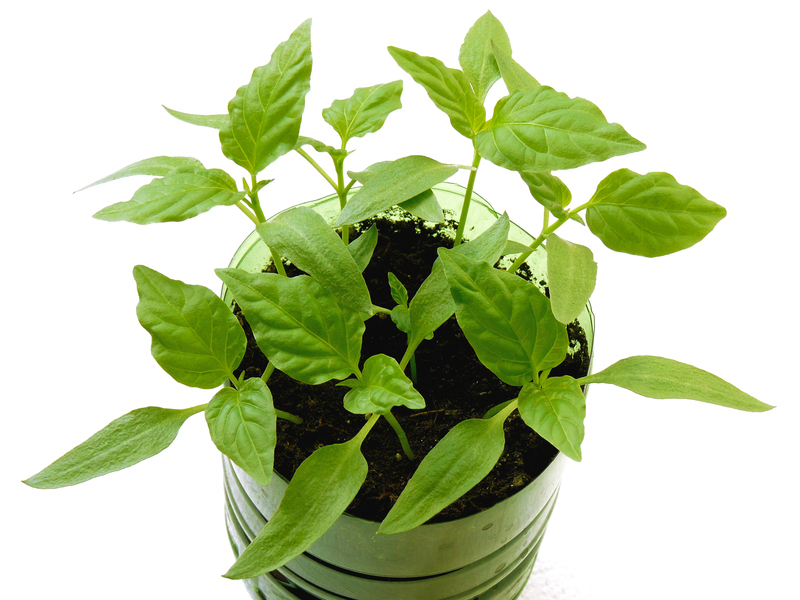Nurturing Green Values in Children with Recycling
Empowering the next generation to care for the planet is crucial in our age of environmental challenges. Teaching children about recycling and nurturing green values from an early age lays the groundwork for responsible, eco-friendly behaviors that last a lifetime.

Why Teaching Kids About Recycling Matters
Raising environmentally conscious children is essential. Our planet's resources are limited, and ecological damage from excessive waste threatens not only nature but also our health and wellbeing. By instilling green values with recycling, we're not only helping the planet but also equipping our children with critical thinking, responsibility, and community spirit.
- Sustainable habits developed during childhood influence future choices.
- Early exposure to recycling fosters respect for natural resources.
- Children often share what they learn, multiplying the impact within families and communities.
What Does It Mean to Nurture Green Values?
Nurturing green values refers to encouraging environmentally responsible attitudes and behaviors, not just a set of rules to follow. It's about developing a genuine understanding and care for the planet. Recycling is a simple and accessible starting point:
- Reduces landfill waste
- Conserves valuable resources
- Decreases pollution
- Inspires innovative thinking and social responsibility
Teaching the importance of recycling helps children grasp how their actions impact the environment.
The Psychology Behind Eco-Education
Children are naturally curious and eager to help. By turning recycling into an engaging activity, we tap into their desire to learn and do good.
- Hands-on learning fosters better understanding and retention
- Positive reinforcement builds self-esteem and ensures continued participation
- Modeling eco-friendly behavior (children imitate adults)
Creative Ways to Teach Recycling in the Home
Want your children to embrace eco-friendly living? Make learning about recycling fun and practical!
1. Set Up a Family Recycling Center
Create a dedicated recycling station at home with labeled bins for paper, plastic, metal, and glass. Invite your child to decorate the containers to encourage a sense of ownership and excitement.
- Use bright colors and clear signs.
- Challenge your child to sort daily waste correctly.
- Keep a chart tracking weekly recycling efforts and celebrate milestones.
2. Involve Kids in Sorting and Cleaning Recyclables
Let your children rinse and sort recyclables, teaching them to spot recycling symbols and decide what goes where.
- Turn sorting into a game or timed challenge.
- Reward accurate sorting and teamwork.
- Discuss why some materials can't be recycled and explore alternatives like reuse or composting.
3. Make Recycling Projects and Crafts
Encourage creativity while reinforcing green values by turning recycled materials into crafts or household items:
- Make bird feeders from bottles, planters from cans, or collage art from magazines.
- Host friendly competitions: "Who can make the funniest robot out of cardboard?"
- Donate finished crafts to charity, demonstrating community spirit.
4. Read Books and Watch Videos About the Environment
Educational content can bring complex ideas to life. Many children's books and shows explain recycling, climate change, and resource conservation in age-appropriate terms. Afterward, discuss the story and connect it to real-life family actions.
Teaching Recycling Outside the Home
Extending green values beyond the home cements these lessons and encourages children to be eco-leaders in their communities.
- Join school recycling programs or green clubs.
- Visit recycling centers or eco-friendly businesses for field trips.
- Organize neighborhood clean-ups with friends.
- Encourage children to suggest recycling initiatives at school or in sports clubs.
Community Impact: Inspiring Others
When kids demonstrate their commitment to recycling, they often inspire siblings, friends, and even adults to follow suit. Their enthusiasm can transform community values and spark new environmental projects.
Challenges in Teaching Children Green Values Through Recycling
While children are keen learners, some challenges can arise:
- Confusing recycling rules: Guidelines may differ by location and material. Make sure to research your local programs and explain them clearly.
- Overwhelming choices: Children may feel unsure which items to recycle. Use visuals, checklists, and practice scenarios to help.
- Lack of immediate results: Recycling's benefits aren't always visible. Reinforce positive habits by sharing stories of real-world impact.
Turning Challenges into Opportunities
- Turn mistakes into learning moments--discuss why some things can't be recycled.
- Explore waste reduction and upcycling as complementary green habits.
- Encourage curiosity--invite questions and go on fact-finding missions together.
Integrating Recycling With Broader Green Values
Recycling is the gateway to other sustainable behaviors. As children adopt recycling, introduce them to concepts like:
- Reducing: Buying less, choosing reusable products, avoiding single-use items.
- Reusing: Finding new uses for old items before discarding them.
- Composting: Turning food scraps and yard waste into valuable soil.
- Energy saving: Turning off lights, using public transport, and supporting green initiatives.
By combining recycling with these broader habits, children learn the interconnectedness of human activities and planetary health.
Fun and Educational Recycling Activities for Kids
- Recycling scavenger hunt: Kids search for recyclable materials around the house or yard.
- Eco-friendly challenges: See who can reduce trash the most over a week.
- Science experiments: Test how long it takes different materials to decompose.
- Home upcycling projects: Turn cereal boxes into organizers or jars into lanterns.
- Family field trip: Visit a local recycling plant to see what happens after collection.
Tracking Progress and Celebrating Achievements
- Use charts to track weekly recycling efforts.
- Set family goals, such as reducing waste by a certain percentage.
- Celebrate milestones with eco-friendly rewards.
Encouraging Ongoing Engagement
Developing green values in children through recycling isn't a one-time lesson--it's an ongoing journey. Keep children engaged by:
- Allowing them to lead new recycling projects
- Updating them about new recycling technologies
- Connecting with local environmental groups
- Linking recycling efforts to wider global challenges and solutions, making children feel they're part of something important.
Resources for Eco-Education
- Educational websites: NASA Climate Kids, EPA's Recycle City, NatGeo Kids
- Fun recycling games and activities: "Recycle Roundup" online, printable recycling bin sorting challenges
- Community initiatives: Local library green workshops, municipal recycling programs, scout badges for eco-habits
- Apps and podcasts: Apps that show recycling instructions based on product barcodes, kid-friendly environmental podcasts
The Role of Schools and Educators in Nurturing Green Values
Parents and educators are partners in planting seeds of sustainability. Schools offer powerful platforms to reinforce recycling habits and nurture eco-friendly mindsets.
- Classroom recycling programs: Assign student "green captains" for weekly recycling duties.
- Curriculum integration: Link science, geography, art, and math with sustainability themes.
- Project-based learning: Design school gardens, reduce cafeteria waste, initiate plastic bottle collections for charity.
- Guest speakers and field trips: Bring in ecologists, visit recovery facilities, or organize video sessions with recycling heroes.
Creating a Green School Culture
- Display recycling results and celebrate achievements in assemblies or newsletters.
- Encourage students to share creative recycling or upcycling ideas from home with the class.
- Start "green teams" to review and improve school environmental policies.
Overcoming Common Recycling Myths With Kids
Many adults and children are influenced by myths about recycling. Help your child understand the truth:
- Myth: "All plastics are recyclable."
Fact: Only certain plastics are processed locally--teach children to check numbers and symbols. - Myth: "One person can't make a difference."
Fact: Every positive action adds up--it inspires others and leads to significant change over time. - Myth: "Sorting doesn't matter; it all goes to landfill."
Fact: Correct sorting helps materials get recycled efficiently, reduces waste, and supports the recycling industry.

Long-Term Benefits of Nurturing Green Values and Recycling Habits
Consistent eco-education and practice pay off:
- Children grow into environmentally responsible adults
- Communities benefit from lower waste and cleaner environments
- Young leaders emerge to drive climate solutions
- Future generations inherit a healthier planet
- Recycling nurtures patience, critical thinking, and a sense of global responsibility
Conclusion: Start Nurturing Green Values in Your Home Today
Nurturing green values through recycling is one of the most impactful gifts you can give your children--and the Earth. By making recycling enjoyable, accessible, and meaningful, you help your kids become stewards of the environment and advocates for positive change. Start small--introduce sorting games, make crafts from recyclables, and celebrate each eco-friendly milestone. As you nurture these values, you're empowering the next generation to protect our planet and shape a sustainable future.
Remember: Sustainable habits begin at home, but their ripple effects can reach around the world. Start nurturing green values with recycling today, and watch your children lead the way to a brighter tomorrow.